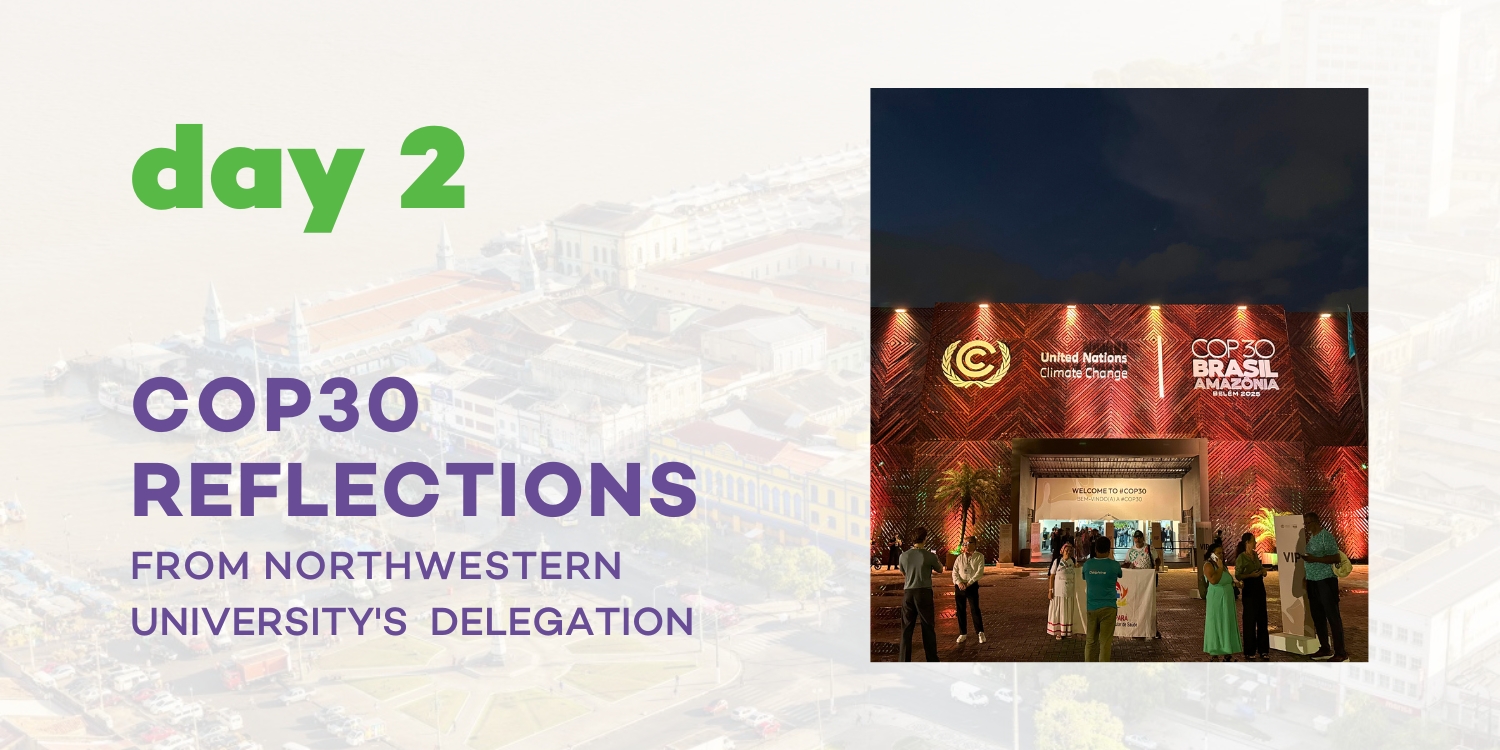Reflections from Northwestern University's COP30 Delegation: Day 2
For a fifth year, a delegation of Northwestern University students and faculty supported by the Roberta Buffett Institute is among more than 50,000 researchers, policymakers, industry leaders, and activists at the world’s largest annual international treaty negotiations and climate summit, the 30th Conference of Parties (COP30) to the United Nations Framework Convention on Climate Change (UNFCCC), held this year in Belém, Brazil. Each day, a different Northwestern delegate is blogging about their experiences and reflections. Day 2 features Jun Park, a fourth-year undergraduate studying political science and international studies with a minor in environmental policy & culture.
I’m Jun Park, a fourth-year undergraduate studying political science and international studies, with a minor in environmental policy & culture. I grew up moving between Milan, Seoul, and Miami, which are cities that sparked my interest in how urban places shape people’s lives and, importantly, climate solutions. At COP30, I’m focused on the role of cities: where they lead, how they coordinate across levels of government, and what it looks like to turn ambition into implementation.
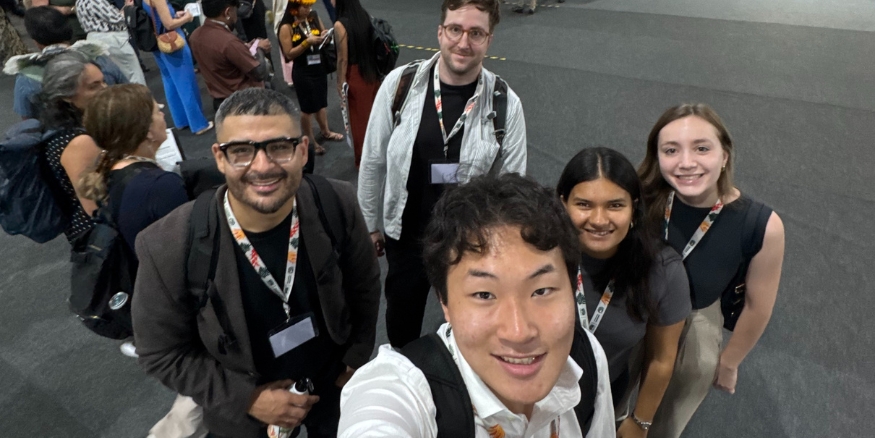
Northwestern University's delegation to the first week of COP30
I started the day at the Plan to Accelerate Solutions (PAS) Implementation Workshop: “Turning Plans into Progress: Decarbonizing Road Transport.” The session employed a “silent meeting” format, which provided everyone with a structured space to contribute their thoughts. This was new to me and surprisingly effective. Officials from Brazil’s Ministry of Transportation and the Netherlands emphasized the importance of transportation to this COP’s agenda and reiterated the push toward net-zero transportation.
My takeaway was that cities are often the pace-setters, as they pilot electric mobility, redesign streets, and align land use with public transit. Urban action can de-risk national targets by proving what works at scale.
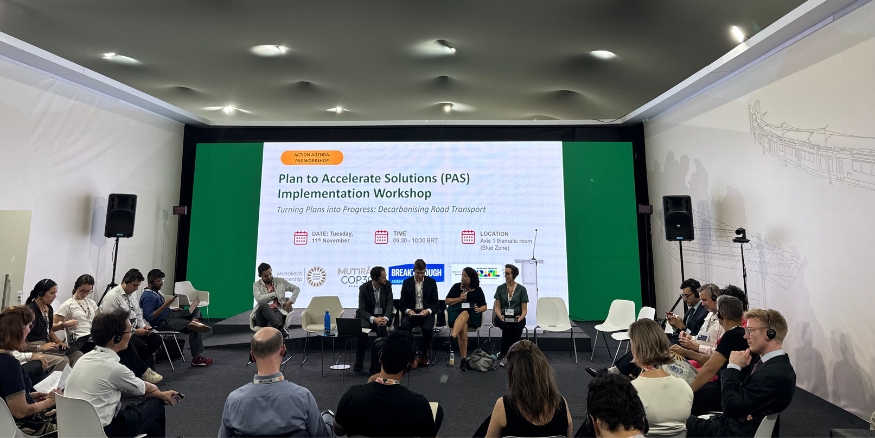
Discussion on transport pathways during the PAS Implementation Workshop
I briefly stopped for the High-Level Ministerial Panel on Multilevel Governance for the Paris Agreement, then joined “How California—and cities—are leading the way on climate innovation,” hosted by The Climate Registry. Speakers highlighted Los Angeles’s preparations for the 2028 Olympics, the expansion of electric mobility, and investments in public transportation. What stood out was California’s strong legislation, combined with a vibrant startup culture, creating a policy pull and innovation push that work together.
Later, I attended the Subsidiary Body for Scientific & Technological Advice agenda item on emissions from fuel used for international aviation and maritime transport (informal consultation). The room was quiet, with little crosstalk among country delegates, but the focus was intense.
In the afternoon, I spent time at the Singapore Pavilion, which featured a day-long focus on cities from regenerative city frameworks to urban resilience. I was impressed by projects that aim to maximize biodiversity alongside dense human activity. Compared to the morning’s emphasis on city-state coordination, Singapore’s sessions centered on the tools that city governments directly control: design standards, nature-positive planning, and integrated infrastructure.
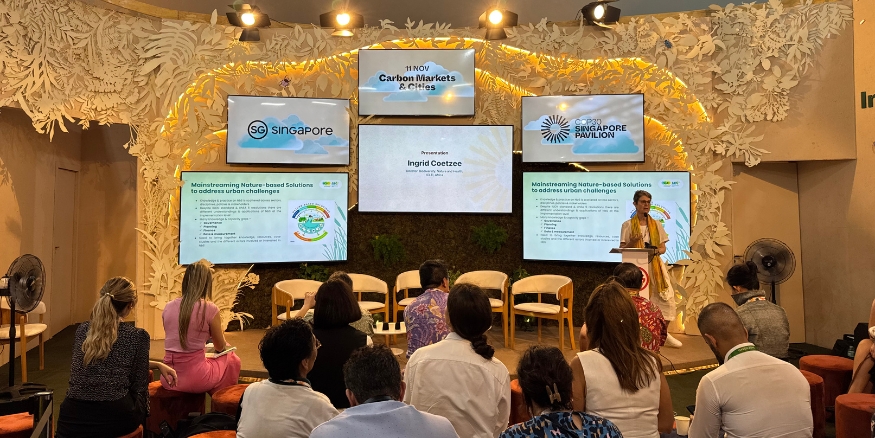
Afternoon conversations on nature and the city at the Singapore Pavilion
To close the day, I joined an America Is All In event featuring California Governor Gavin Newsom and New Mexico Governor Michelle Lujan Grisham. They spoke to the power of subnational leadership and how states and cities can sustain momentum and credibility internationally, especially when federal engagement is limited, and how that leadership shows up at forums like COP30.
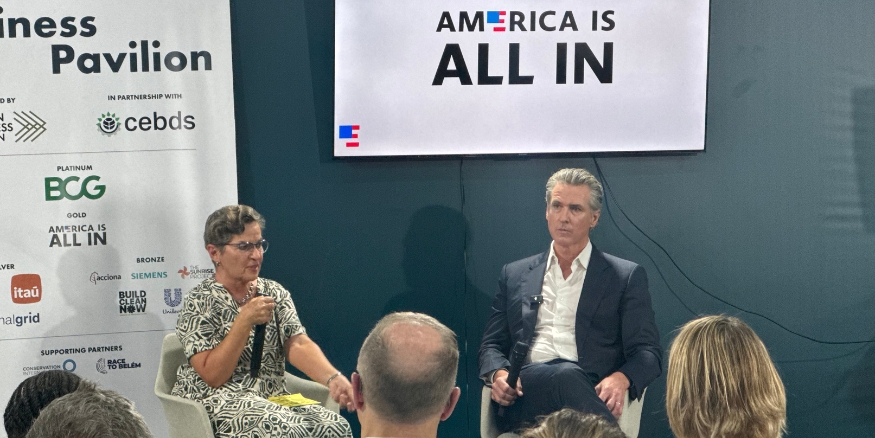
Governor Gavin Newsom of California is answering a question regarding the role of a subnational actor
Day 2 really left me with one key idea: cities are where climate action meets everyday life. From silent-format workshops to ministerial panels and pavilion discussions, I witnessed how local policies, national goals, and global efforts all intersect. I’m ending the day feeling inspired and excited to see how city-driven innovations are becoming a game-changer.
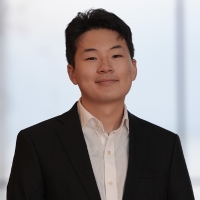 Jun Park is a fourth-year undergraduate studying political science and international studies with a minor in environmental policy & culture. He has also studied at Sciences Po in France and Universitat Pompeu Fabra in Spain, experiences that cultivated his interest in comparative studies and global perspectives. He has researched topics ranging from addressing disparities in public transportation to open access to green spaces in underserved neighborhoods. Additionally, he is a Mellon Mays Fellow and an Obama-Chesky Voyager Scholar for Public Service.
Jun Park is a fourth-year undergraduate studying political science and international studies with a minor in environmental policy & culture. He has also studied at Sciences Po in France and Universitat Pompeu Fabra in Spain, experiences that cultivated his interest in comparative studies and global perspectives. He has researched topics ranging from addressing disparities in public transportation to open access to green spaces in underserved neighborhoods. Additionally, he is a Mellon Mays Fellow and an Obama-Chesky Voyager Scholar for Public Service.

